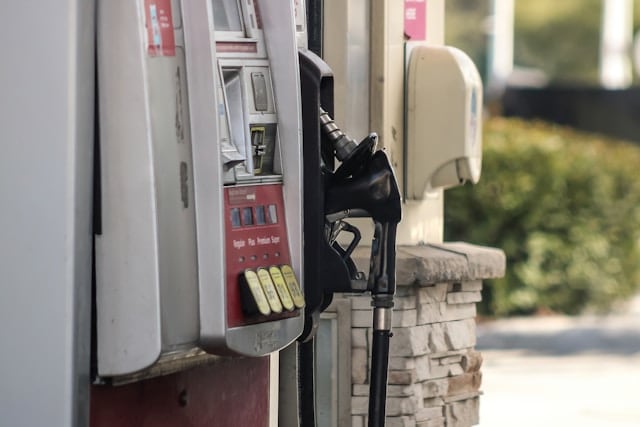
One of the most important factors in keeping a Lincoln vehicle running smoothly and efficiently is the type of gasoline used. Using the right kind of gas can significantly impact a vehicle's performance, fuel efficiency, and overall longevity. In this article, we'll take a closer look at the recommended gasoline for Lincoln vehicles and why it matters.
Recommended Gasoline for Lincoln Vehicles
For most Lincoln models, the manufacturer recommends using premium gasoline with a minimum octane rating of 91. This is especially true for Lincoln's SUVs and larger sedans, which are equipped with high-performance engines requiring higher-octane fuel to prevent knocking and potential engine damage.
However, there are some exceptions. The 2023 Lincoln Corsair, for example, can use regular unleaded gasoline, but premium fuel is recommended for optimal performance. On the other hand, the 2023 Lincoln Aviator, Nautilus, and Navigator all specifically require premium gasoline to ensure the best possible performance and efficiency. When in doubt, we recommend opting for premium gasoline to maintain engine health and performance.
The Benefits of Using Recommended Gasoline
So, why is it important to use the recommended premium gasoline in a Lincoln vehicle? There are several key benefits to consider:
- Improved engine performance: Premium gasoline has a higher octane rating, which means it can withstand higher compression before igniting. This allows the engine to operate at its full potential, delivering maximum power and performance.
- Enhanced fuel efficiency: While premium gasoline may cost more at the pump, it can help improve the vehicle's fuel efficiency in the long run. Higher-octane fuel burns more efficiently, which means getting more miles per gallon and saving money on fuel costs over time.
- Reduced emissions: Using the recommended premium gasoline can also help reduce emissions output. Cleaner-burning fuel produces fewer harmful pollutants, which is better for the environment and can help vehicles meet strict emissions standards.
- Prevention of engine knocking: One of the most important reasons to use premium gasoline in a Lincoln is to prevent engine knocking or pinging. This occurs when the fuel ignites prematurely in the engine, causing a distinctive knocking sound and potentially leading to engine damage over time.
The Impact of Using Incorrect Gasoline
While it may be tempting to save a few dollars at the pump by choosing regular gasoline, doing so can end up costing more in the long run. Using lower-octane fuel in a vehicle that requires premium can lead to a range of problems, including:
- Reduced performance and power output.
- Decreased fuel efficiency.
- Increased risk of engine knocking and pinging, especially under heavy loads or high rpms.
- Potential long-term engine damage due to inadequate fuel quality.
In short, using regular gasoline in a Lincoln vehicle that recommends premium is never a good idea. It may save a little money upfront, but the potential consequences aren't worth the risk.
Fuel Quality and Top Tier Detergent Gasoline
In addition to using the recommended premium gasoline, choosing high-quality fuel from reputable gas stations is important. Lincoln recommends using top tier detergent gasoline, which contains higher levels of detergents and additives that help keep the fuel system clean and functioning properly. Top tier gasoline is designed to prevent the buildup of deposits in fuel injectors, intake valves, and other critical engine components. Over time, these deposits can restrict fuel flow, reduce performance, and decrease fuel efficiency. Using TOP TIER gasoline helps maintain a Lincoln's optimal performance and avoid costly repairs down the road.
It's worth noting that not all gas stations offer top tier gasoline, so it may take a bit of research to find a reputable local provider. However, the long-term benefits of using high-quality fuel are well worth the effort.
Fueling Tips for Lincoln Owners
Other than using recommended premium gasoline and high-quality top tier fuel in a Lincoln vehicle, there are a few additional fueling tips to keep in mind:
- Choosing reputable gas stations: As mentioned earlier, not all gas stations offer high-quality top tier gasoline. Choosing a reputable provider that consistently delivers quality fuel ensures the best vehicle performance and longevity.
- Avoiding fuel additives: Unless specifically recommended by Lincoln or a trusted mechanic, it's best to avoid using additional fuel additives. These products can sometimes do more harm than good, potentially damaging the engine or voiding the warranty.
- Maintaining a regular fueling schedule: A Lincoln's gas tank should always be at least half full. This helps prevent fuel pump damage and ensures there's always enough gas to reach the destination safely.
- Using fuel stabilizers for long-term storage: When storing a Lincoln for an extended period (such as over the winter), it's a good idea to add a fuel stabilizer to the tank. This helps prevent the gasoline from breaking down and forming gum and varnish deposits that can clog fuel lines and injectors.
The Importance of Proper Maintenance at Jim Burke Lincoln
Of course, using the right gasoline is just one part of keeping a Lincoln vehicle running at its best. Regular maintenance and service are also essential for ensuring optimal performance, efficiency, and longevity.
That's where Jim Burke Lincoln comes in. As a leading Lincoln dealership serving the Bakersfield, California, area, we have the expertise and resources to help you care for your vehicle properly. Our factory-trained technicians have years of experience working with all Lincoln models, from the compact Corsair to the spacious Navigator. Schedule a service appointment with us today to keep your vehicle running in tip-top shape.
a gas pump next to a brick wall by Dawn McDonald is licensed with Unsplash License